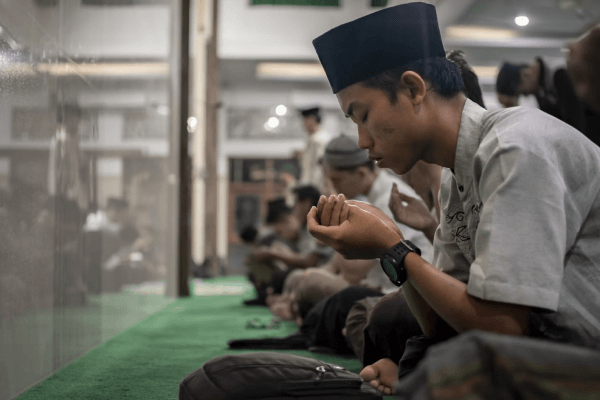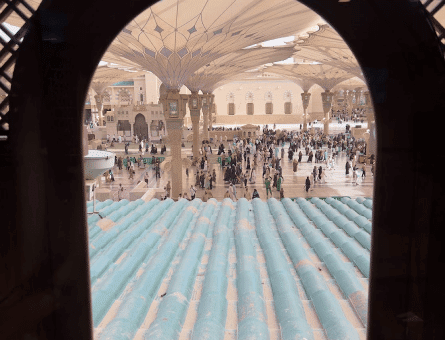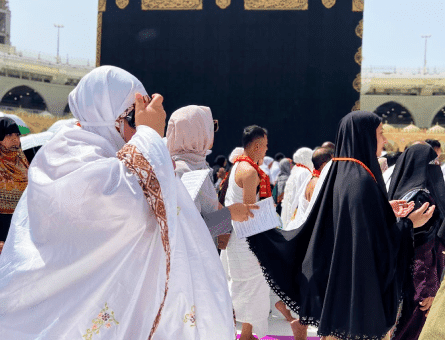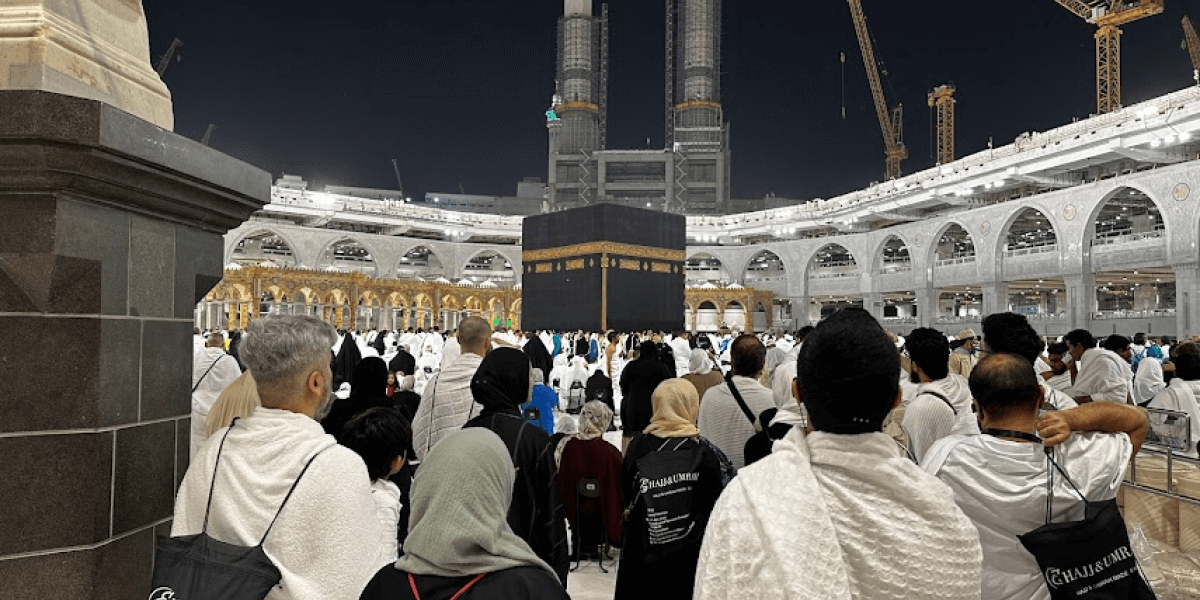5 lessons you can learn from the life of Prophet Ibrahim (AS)
Who was Prophet Ibrahim (AS)?
Allah SWT says in the Holy Quran,
إِنَّ إِبْرَاهِيمَ كَانَ أُمَّةً قَانِتًا لِّلَّهِ حَنِيفًا وَلَمْ يَكُ مِنَ الْمُشْرِكِينَ
(Surah Nahl: 120)
‘Surely, Ibrāhīm was an Ummah (a whole community in himself), devoted to Allah, a man of pure faith; and he was not among the Mushriks (i.e. those who associate partners with Allah.)’
-Translation: Mufti Taqi Usmani
Ibrahim (AS) was a Prophet, born in Babylonia, which is modern- day Iraq. He was born to a father who made idols that his people worshipped. He went through a path of discovering Allah, the One True God and rejecting the worship of idols. He was the father of nations, and from his lineage, came the Prophets of the monotheistic religions. He, along with his son Ismail, built the Kaaba which is also called ‘Bayt ullah’, the house of God.
The story of Prophet Ibrahim (AS)
There are so many significant events that happened in the life of Ibrahim (AS) that we can learn from. As Muslims, this is part of our history and we should know it and be attached to it. When we look back at his life, we see that there are so many lessons that we can apply to our own. This article lists just 5 lessons we can take away from the life of Ibrahim (AS).
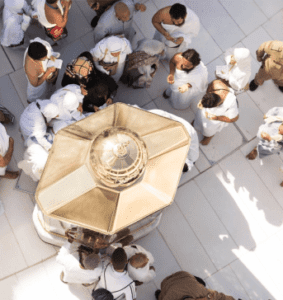
Lesson 1: Ask questions!
Ibrahim (AS) was surrounded by people who worshipped idols as well as the sun, the moon, the stars and human kings. He thought about each of these in turn and none of them made sense. He asked questions to his father and to his people. They were not able to give him the answers he needed. Allah guided him to the worship of God alone. This shows us that we need to ask the pressing questions on our minds, especially when things don’t seem right. InshaAllah, God will guide us to the answers but we need to seek them.
Lesson 2: There is no room for racism in society
One of the most important people in this story is Hajar, the mother of Ismail (AS). She was African which means that Prophet Ismail (AS) was half-African and half-Babylonian.
When in the barren land, alone with her infant son Ismail, she seeks food and water. She runs to the top of the hill called Safa and then to Marwa, and back again, 7 times.
And this event becomes ingrained into our Hajj rituals, performed by all pilgrims. As well as realising that there is no room for racial discrimination in Islam, we should also seek to know the rich diversity of key figures in our history.
Lesson 3: Stay humble
No matter what good we do in our lives, we should always seek Allah’s acceptance. When we do good actions, one third of the action is to do with following the order or command of Allah. The second third is to perform the action in the way that it was taught to us by the Prophet Muhammad (SAW). And the final third of our actions is to do the action for the sake of seeking Allah’s pleasure alone. In this way, our action is complete.
Ibrahim (AS), building the Kaaba brick-by-brick, along with his son Ismail, made dua to Allah to accept this from them. It was such an amazing feat, yet he was focused on seeking acceptance. This beautiful dua is mentioned in the Quran:
وَإِذْ يَرْفَعُ إِبْرَاهِيمُ الْقَوَاعِدَ مِنَ الْبَيْتِ وَإِسْمَاعِيلُ رَبَّنَا تَقَبَّلْ مِنَّا ۖ إِنَّكَ أَنتَ السَّمِيعُ الْعَلِيمُ
(Surah Baqarah: 127)
‘As Abraham and Ishmael built up the foundations of the House [they prayed], ‘Our Lord, accept [this] from us. You are the All Hearing, the All Knowing.’
-Translation: Abdul Haleem
When we ask Allah to accept our actions, even though we know they are good actions, we are acting with humility. We are realising that the action could have deficiencies in it and asking Allah to overlook these, as He is The Most Kind.
Lesson 4: Children learn by example
When we are around children, we should realise the influence we have on them. We know that it is not enough to tell children to do things but that we have to model good behaviour.
When Prophet Ibrahim (AS) was on his way to sacrifice his son at the command of Allah, the shaitaan came to him with whispers to turn him away from the task. Ibrahim AS picked up 7 stones and threw them at the shaitaan while saying ‘Bismillah’ (In the name of Allah) and ‘Allahu Akbar’ (Allah is the Greatest). The shaitaan returned with a different whisper and he repeated the action. Finally, the shaitaan came to his son Ismail (AS) and whispered to him. Ismail (AS) did as his father did, he picked up 7 stones and threw them at shaitaan, saying the same words.
This event is embedded into the Hajj rituals of every Muslim, it is the Rami (throwing stones at the 3 pillars in Mina).
Children will behave as they see us behave. We are an example for them and we should try to model the best behaviour.
Lesson 5: Dua is powerful
Ibrahim (AS) made dua for a son. He and his wife had advanced in age and he was still making dua. Finally, Allah blessed him with a son, Ismail (AS) and then another son Ishaaq (AS). Ismail was born to Hajar (RA) and Ishaaq was born to Sarah (RA), who was thought to be barren.
From this we learn that we should not stop making dua for the things we dearly want in life.
What is it that one thing you want most in life? Be persistent and regular in making dua for it, with certain belief that Allah will grant it to you. Have hope and know that Allah will answer you.
He may accept your du’a, prevent a harm from afflicting you, or give you something greater than what you asked for! Especially in the last 10 days of Ramadan, we should be making as much dua as we can.
To summarise
The eventful and blessed life of Ibrahim (AS) offers us so many lessons. If we learn about these and contemplate how we can apply it to our own lives, it can help us to know how to act in certain situations. Why would we not look to learn from the man who was Khalilullah (Friend of Allah)?
By Nasria Begum
Watch the video series!
These 5 lessons have been taken from The Father of Nations, a video series told by Shaykh Afdal Feroz. Pilgrim have produced this dedicated 18-part Ramadan series based on the lessons from the life of Ibrahim (AS), click here to watch now.
You can donate to sponsor the next Ramadan series here.
Through His Names
New course with
Ustadh Shabbir Hassan





